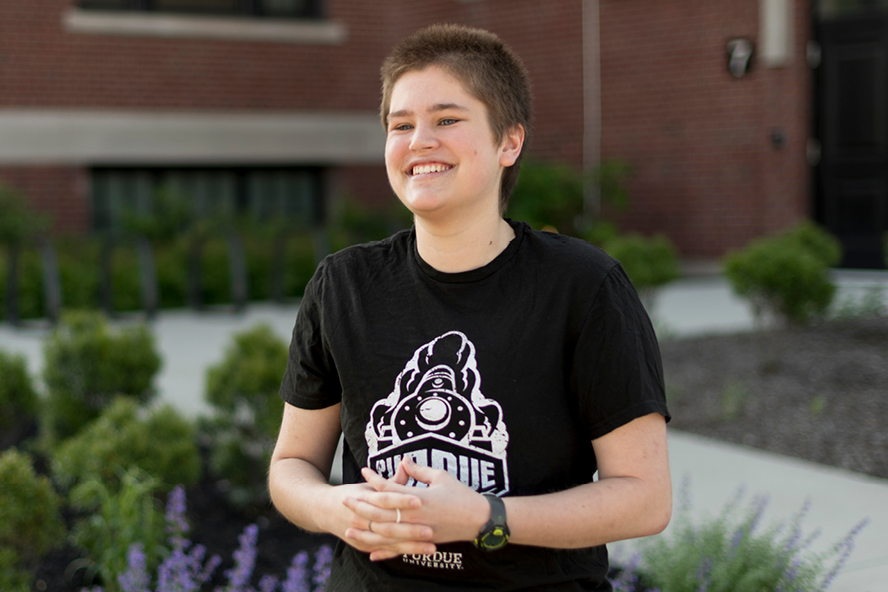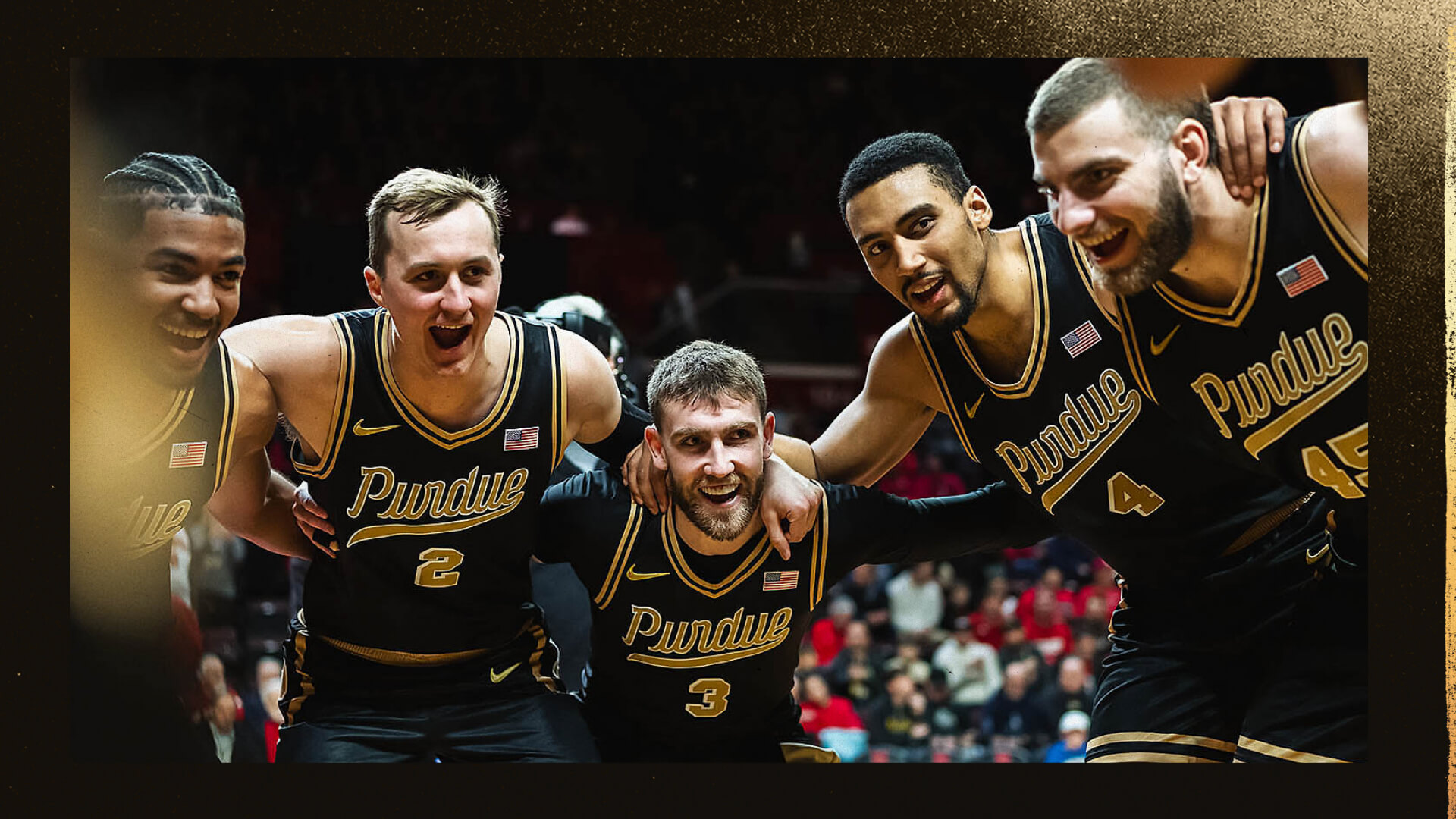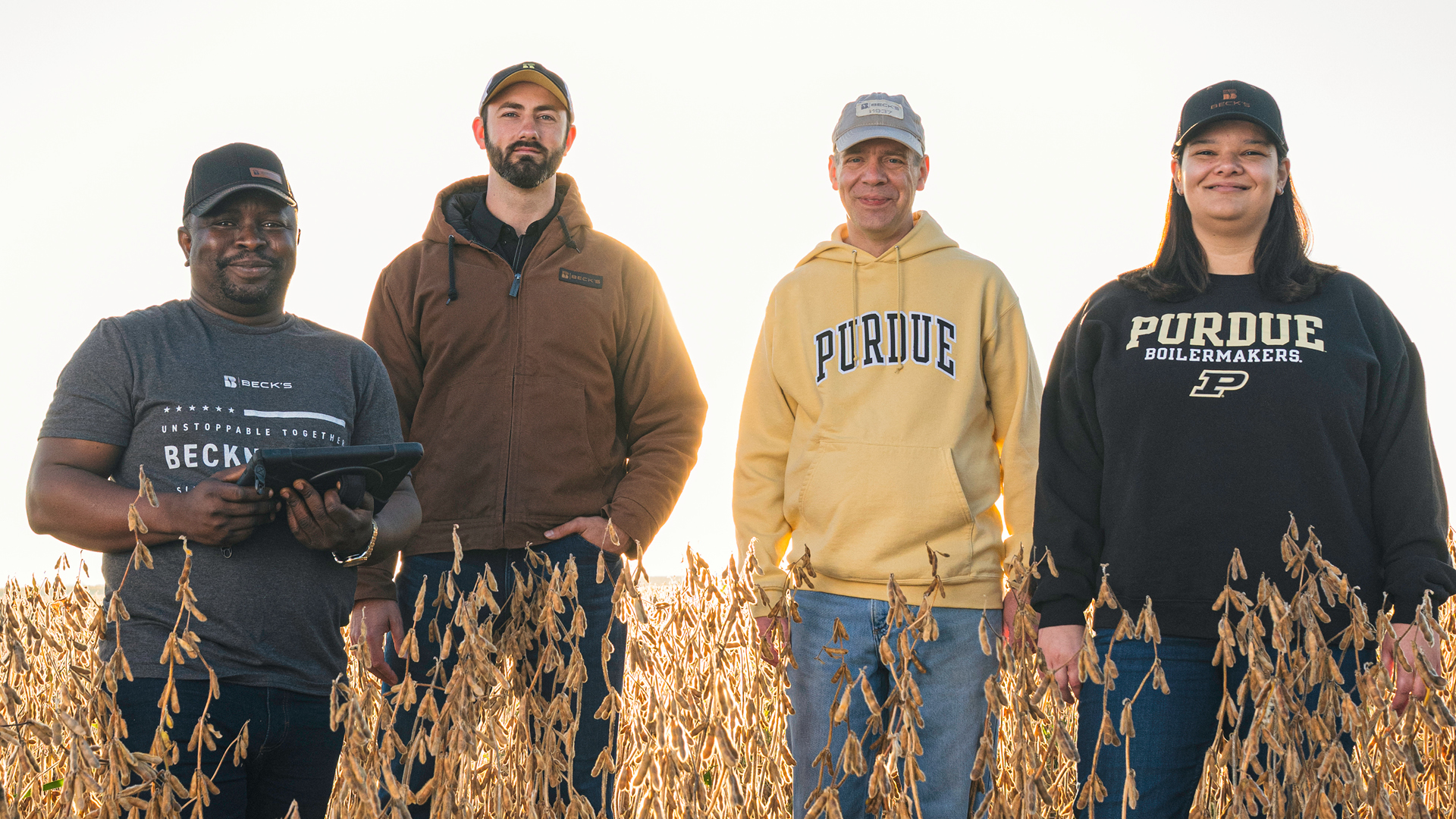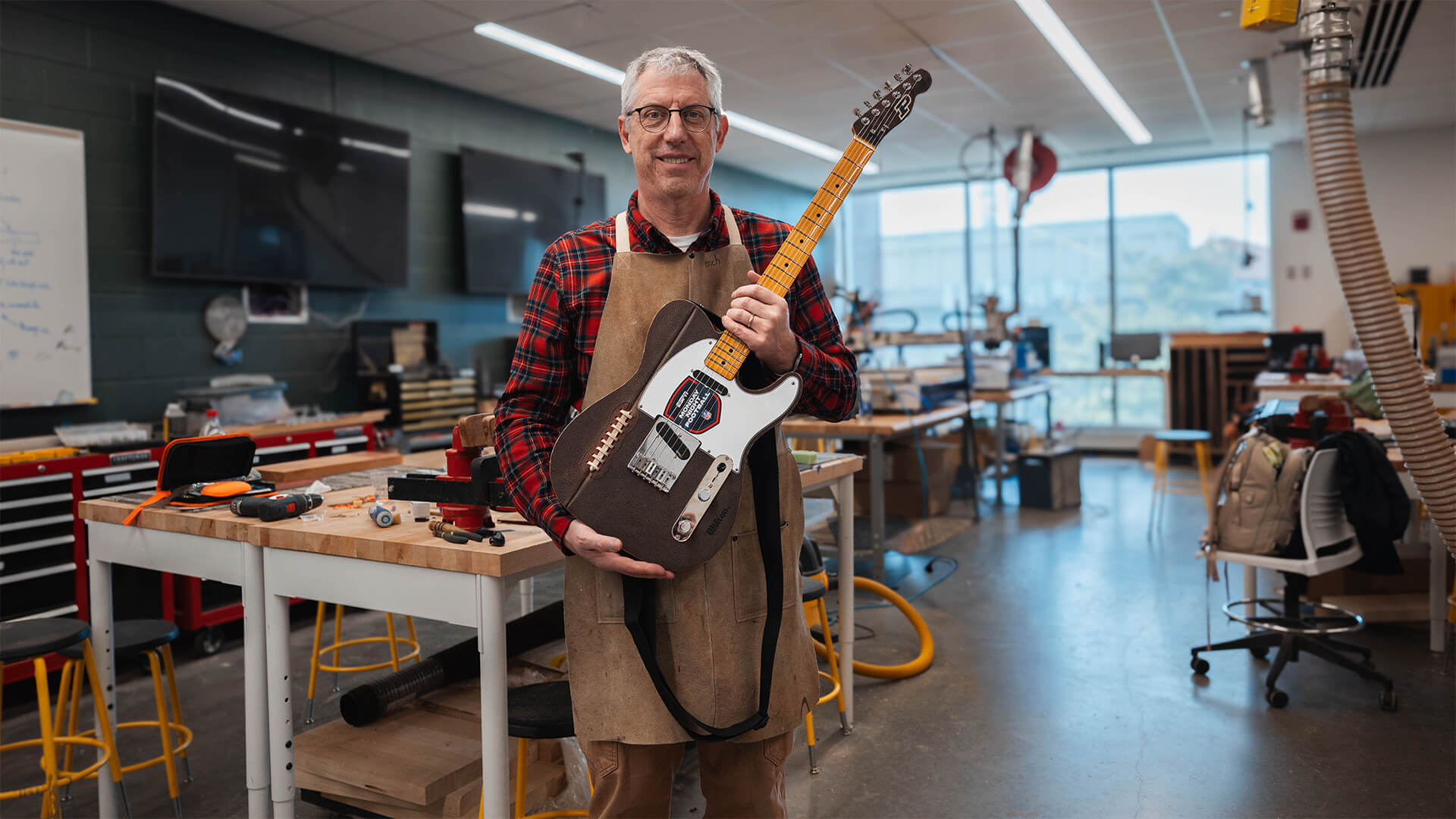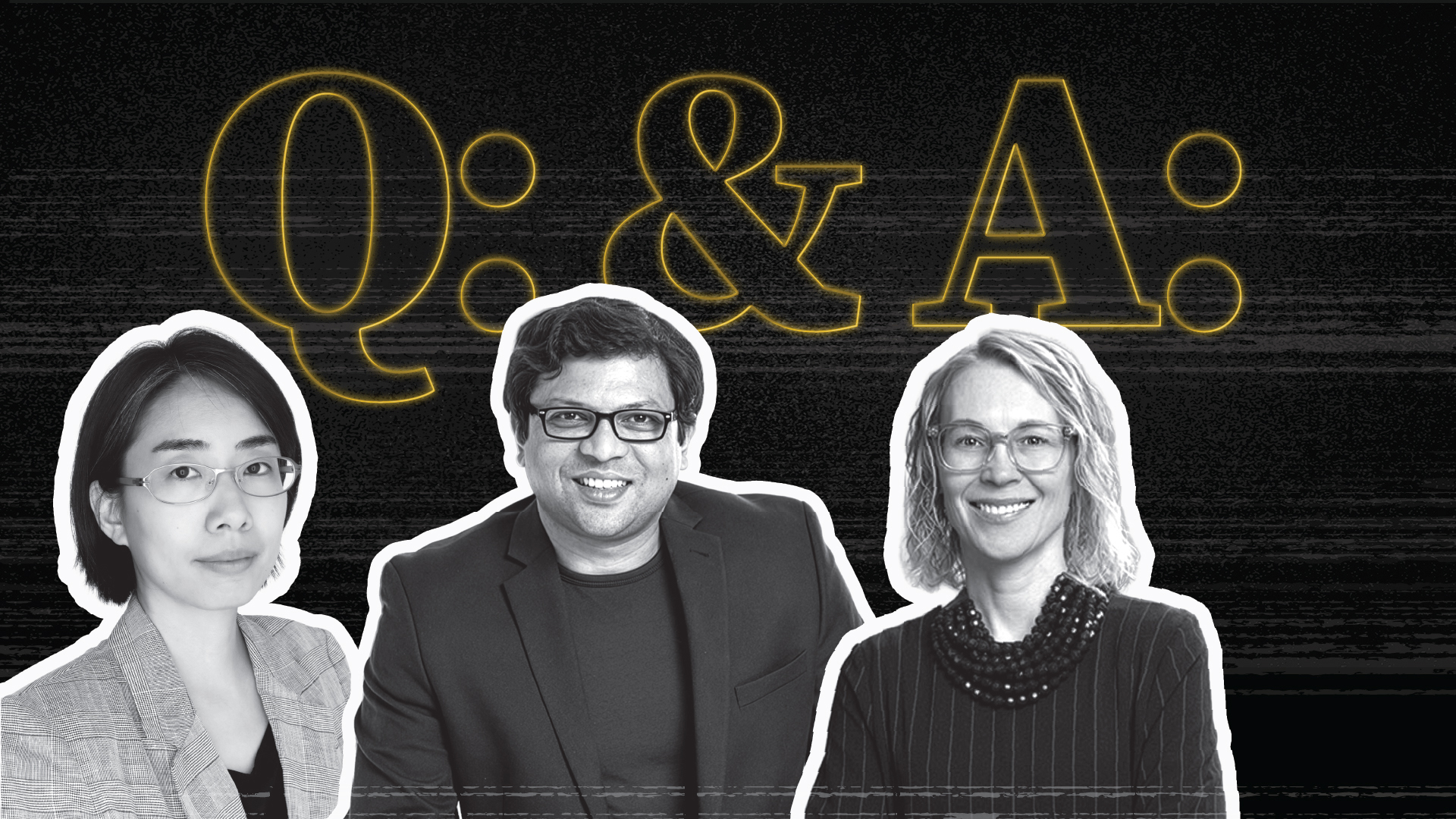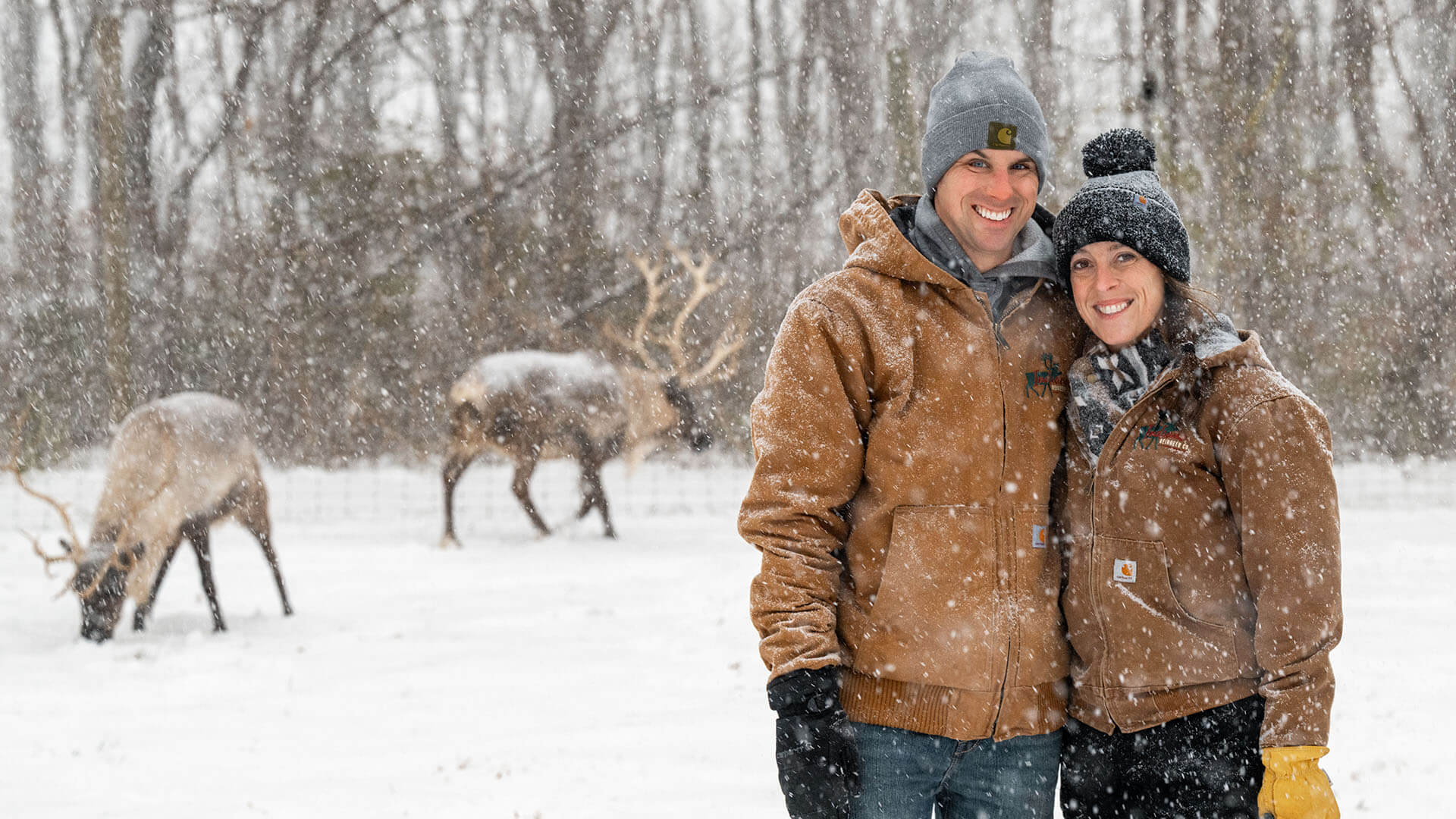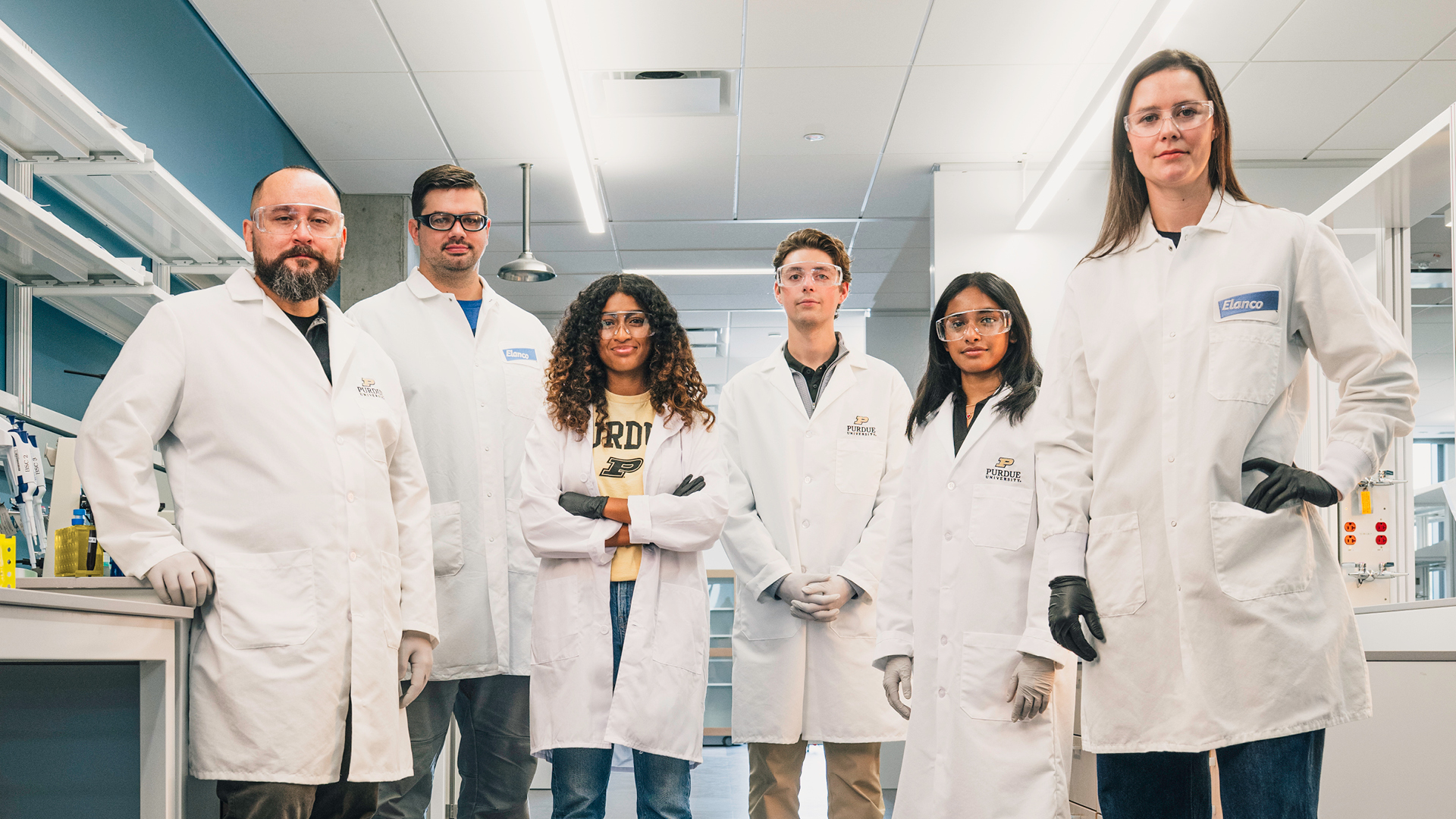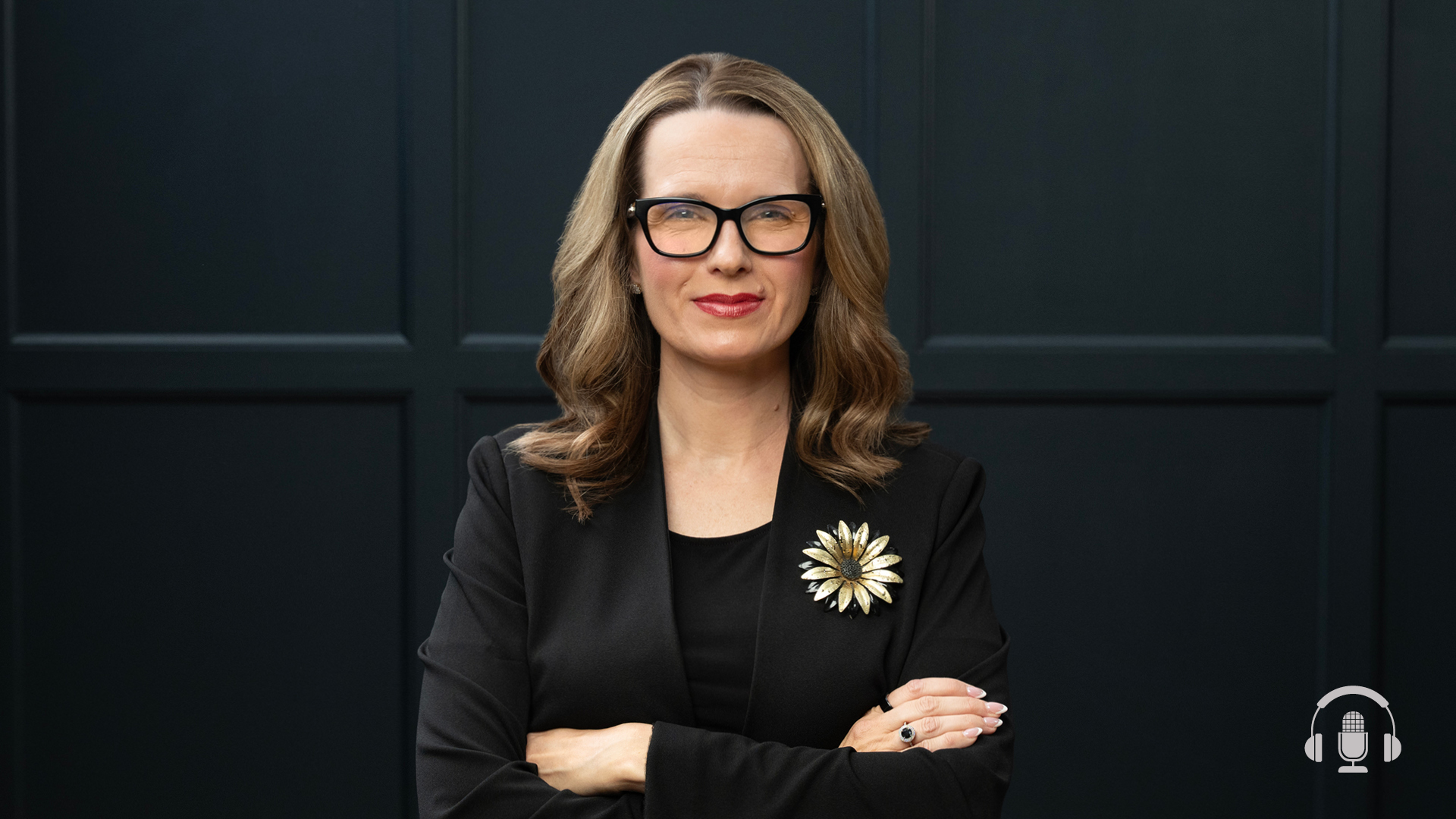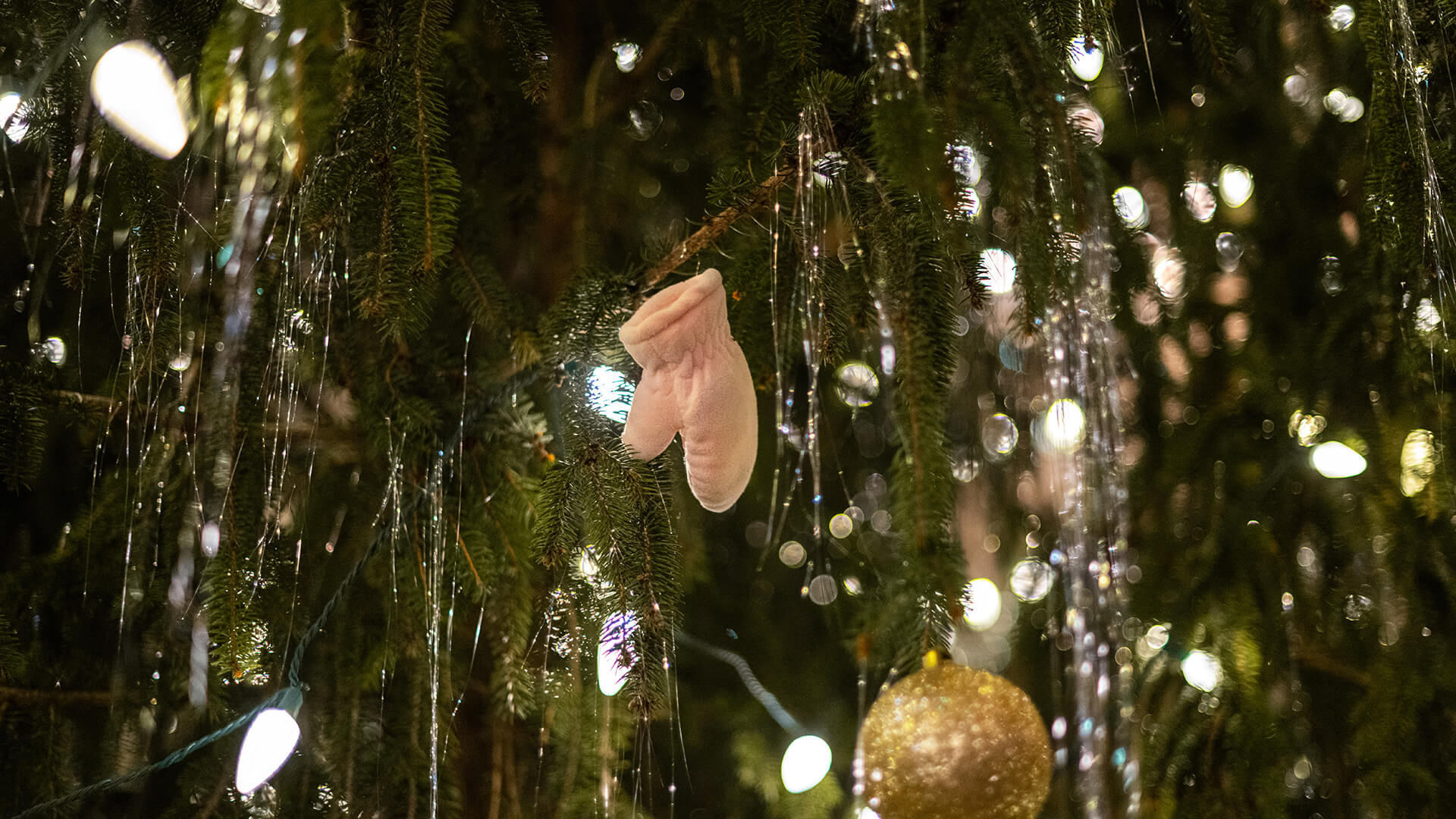LGBTQ at Purdue: Pride in community and self
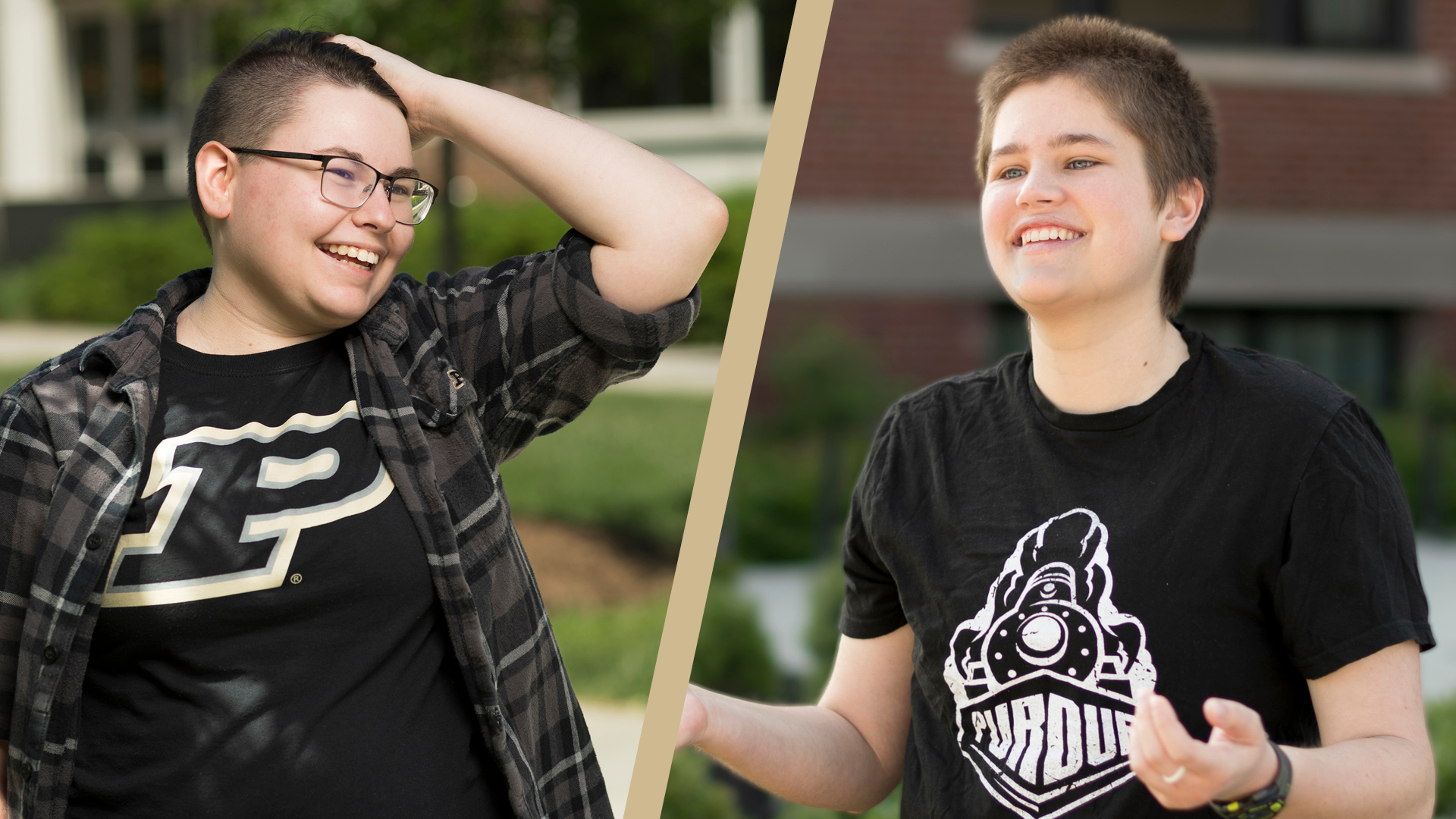
Elise Doan and Audrey Williamson both participate in the LGBTQ Center Speakers Bureau, building dialogue and breaking down stereotypes surrounding members of the LGBTQ community. (Purdue University photos/John Underwood)
Elise Doan and Audrey Williamson share how LGBTQ students are supported at Purdue
Discovering a ‘chosen family’
From Elise Doan’s perspective, loving yourself is an act of representation.
“I walk around campus confidently with my pride pins and flags on my backpack. Sometimes, I’ll see pride pins and flag on other people’s backpacks, and we’ll have that unspoken connection.
“It’s like, ‘I see you; I see you.’”
Part of what drew Doan (they/them) to Purdue University in the first place, in addition to its prestigious reputation as the “Cradle of Astronauts,” was the five-out-of-five-star Campus Pride Index rating. Now a junior studying aeronautical and astronautical engineering, Doan, who is a member of the LGBTQ community, has seen how much Purdue has invested in the LGBTQ students across campus.
“I think there’s a lot of places where you can end up being a statistic, but you are valued so much more at Purdue. From the Purdue LGBTQ Center, to the gender-inclusive housing in Hillenbrand, to being able to hang out at places specifically designed to lift you up, it shows Purdue’s commitment to the community and how much we are valued,” they say. “I’m really happy here.”
Proving this commitment further, Purdue University has been named the #1 most LGBTQ+-friendly college in Indiana, according to a report by BestColleges.com and Campus Pride in 2022.
The Lesbian, Gay, Bisexual, Transgender and Queer (LGBTQ) Center, located in Schleman Hall, offers the campus community education on LGBTQ issues, advocacy for equitable access and events, and activities for the entire Purdue community.
The cultural center is a critical resource for students in the LGBTQ community, advocating for greater access to health care and mental health resources, the ability to change your preferred name and gender marker, gender-neutral restrooms and housing, and much more.
You don’t have to be a member of the LGBTQ community to get involved, however. The cultural center is welcoming to anybody, regardless of how they identify, including allies, those in the process of coming out, those questioning their gender or sexual identity, and those interested in learning more about the community.
Doan says, “You don’t have to go in knowing everything. You can just be there to be a supportive, smiling face and help people out. You’ll be welcomed with open arms.”
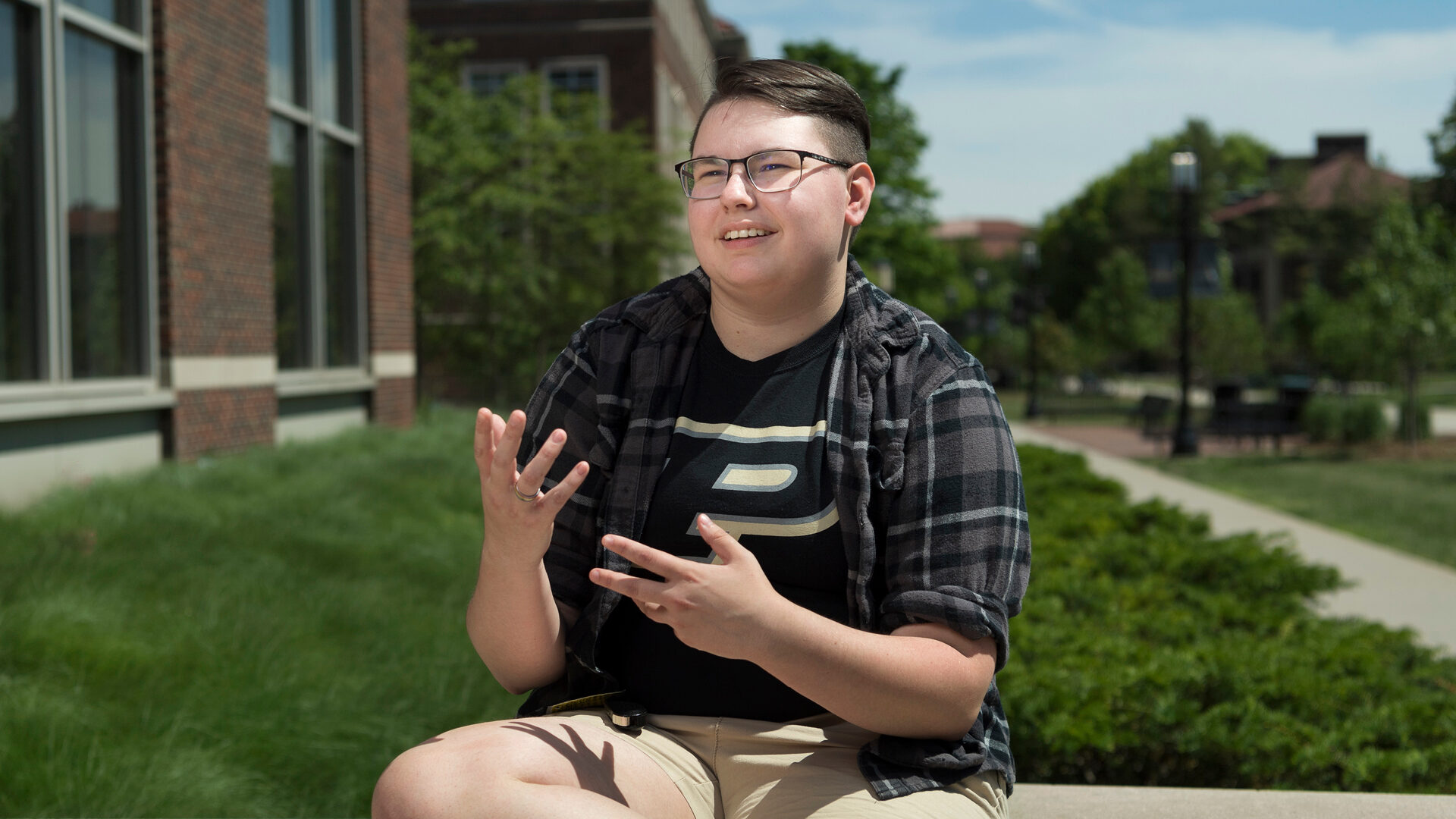
In addition to the advocacy work Doan does at Purdue, they were a part of organizing the very first Pride Festival in their hometown of Lawrenceburg, Indiana, and in establishing the Gender and Sexuality Alliance (GSA) at their high school. As an advocate for one-on-one mentorship, they find the LGBTQ community at Purdue to be both a valuable resource and another way to give back to the community that means so much to them.
“Whenever I can do something to make life a little bit easier for the next person who comes along, I try to take that chance and jump for it. Like taking younger people who are still figuring things out under my wing and letting them know that it’s going to be OK and that I’m there for them, even if it feels like the rest of the world is scary,” they say.
“When a student comes to college, it might be their first time experiencing life on their own without the influences of their family,” Doan says. “It can be rough to try to figure out some of these things by yourself.”
But Doan believes there are plenty of opportunities for any Purdue student to find a group that can help with those discoveries.
“Even if there weren’t many people from your hometown who were supportive in the way that you needed, there are definitely people at Purdue who will accept you the way you are and be super supportive of you,” they say.
“It’s a great opportunity to come to Purdue and blossom into your true self and feel all the love on campus through your chosen family.”
Even if there weren’t many people from your hometown who were supportive in the way that you needed, there are definitely people at Purdue who will accept you the way you are.
Elise Doan
Junior, aeronautical and astronautical engineering
Uplifting a community
If you’re in need of a cup of coffee and a positive and supportive environment on campus, Audrey Williamson (they/them) suggests stopping by the LGBTQ Center.
“The LGBTQ Center is a great place since it’s both an educational center and a cultural center,” they say. “It’s a place to hang out and do homework, there’s a pop-up pantry, it provides information and resources, there’s a small library with queer literature and it’s got amazing staff that will help you out with anything.”
As a member of the LGBTQ community who just finished their freshman year studying robotics engineering technology, Williamson offers advice for other LGBTQ students at Purdue and students interested in learning more about or supporting the LGBTQ community — visit the LGBTQ Center early and often.
“It’s important for students to have a community of people like them because it’s really isolating and damaging to your mental health if you can’t find the right crowd,” they say.
Like many shy middle schoolers, Williamson struggled to find close friendships growing up. During their time at Purdue Polytechnic High School (PPHS), they started to come out of their shell, but the opportunities for belonging at Purdue helped most.
“Now that I’ve come to Purdue and found my people, I’m just so much happier,” they say. “It’s so much better for my mental health. I know I’ve got people that I can talk to if I need to or are willing to do things with me, so I’m spending fewer weekends by myself in my room doing nothing.”
Having a built-in support system also has helped relieve Williamson’s self-imposed academic pressure.
“Finding that community has helped me take breaks. I’ve always been a straight-A student, and it’s very important to me that I maintain my GPA. But now that I’ve fallen in with my people, I’ve come to realize that I’ve based less of my value on my grades than before. I live in the moment, and it’s been great to ease the pressure that I was always putting on myself.”
Williamson is still a very active student, serving as Activism Chair for the LGBTQ+ Student Alliance and participating in the Purdue chapter of oSTEM (Out in STEM).
“Ever since coming to realize this part of myself and putting myself in spaces where other queer people exist, it’s been really great for me to make a lot of connections and a lot of new friends.”
Spreading LGBTQ awareness
Both Doan and Williamson participate in the Speakers Bureau as a part of the LGBTQ Center.
According to Doan, “The Speakers Bureau is a group of students who have volunteered through the center to share their experiences in panel discussions, classrooms and trainings. A lot of the main things that we participate in are going to speak to classes who are studying topics relevant to the community.”
For example, Purdue nursing classes might undergo Safe Zone training to learn ways to better support LGBTQ patients and gain new perspectives on navigating personal health care as a member of the LGBTQ community. Safe Zone trainings and other similar trainings are available for the campus community and are produced by the LGBTQ Center.
“It’s so simple to talk about my experiences candidly,” Doan says. “I know that it can open doors for people to extend the love.”
Williamson says, “It’s nice to see people making an effort to be the best allies that they can be. It means a lot to me that I get to help spread knowledge.”
The Speakers Bureau consists of around 25 members representing LGBTQ students and allies, staff and faculty who answer questions, break down stereotypes, and build dialogue around issues that are important to them individually and for the community.
Visit the Purdue LGBTQ Center website to learn more about how to get involved, schedule a training or participate in the Speakers Bureau.
“Not every person has met someone in the community before, and they might just have genuine questions that maybe they don’t know how to ask,” Doan says. “If we give them a space to ask those questions with the language that they have, we all benefit.”
It’s nice to see people making an effort to be the best allies that they can be. It means a lot to me that I get to help spread knowledge.
Audrey Williamson Freshman, robotics engineering technology
